15 Celebrities Who Had to Hide Their Ethnicity to Succeed in Hollywood

The glitz and glamor of Hollywood have long attracted talents from all walks of life. However, beneath the glittering surface lies a historical narrative of identity concealment. Many iconic celebrities felt compelled to alter or hide their ethnic backgrounds to fit the prevailing norms and expectations of the entertainment industry. These decisions were often driven by the harsh realities of the time, where ethnic diversity was not as celebrated as it is today. This blog post explores the stories of 15 such stars, shedding light on their journeys and the transformations they underwent to make their mark in Hollywood.
1. Winona Ryder

Winona Ryder, originally Winona Laura Horowitz, became a cultural icon with her distinctive roles. Her decision to change her last name was partly motivated by a desire for broader appeal in a competitive industry. Winona’s unique charm and authenticity set her apart, allowing her to embody a range of complex characters.
Her story embodies the tension between personal and professional identity in Hollywood. Despite the challenges, Winona’s career has been marked by critical acclaim and a devoted fanbase. Her legacy in film continues to inspire new generations of actors and artists.
2. Kirk Douglas
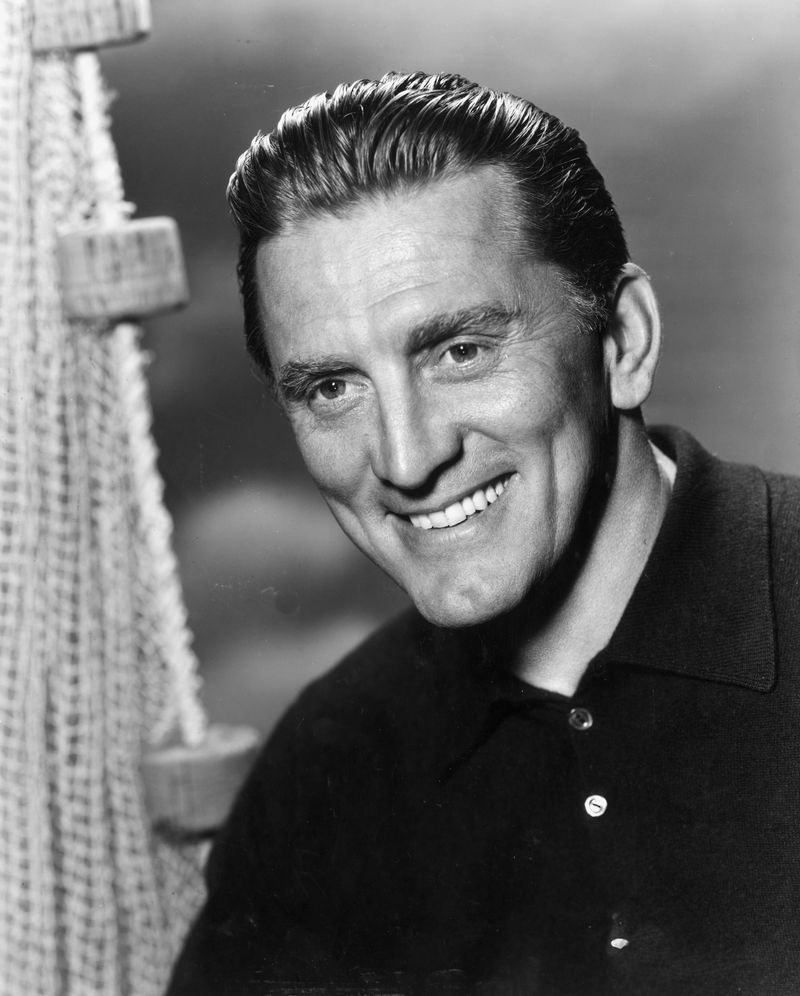
Kirk Douglas, originally Issur Danielovitch, became a symbol of strength and charisma in Hollywood. Born to Jewish immigrant parents, he changed his name to better fit the American mainstream. This decision wasn’t just about acceptance; it was a strategic move to stand out in a competitive industry. Kirk’s rugged good looks and intense performances made him a legend.
Yet, behind the scenes, his story was one of balancing personal identity with professional ambition. Douglas’s legacy is not just in his films, but in his ability to navigate and conquer a challenging Hollywood landscape.
3. Rita Hayworth
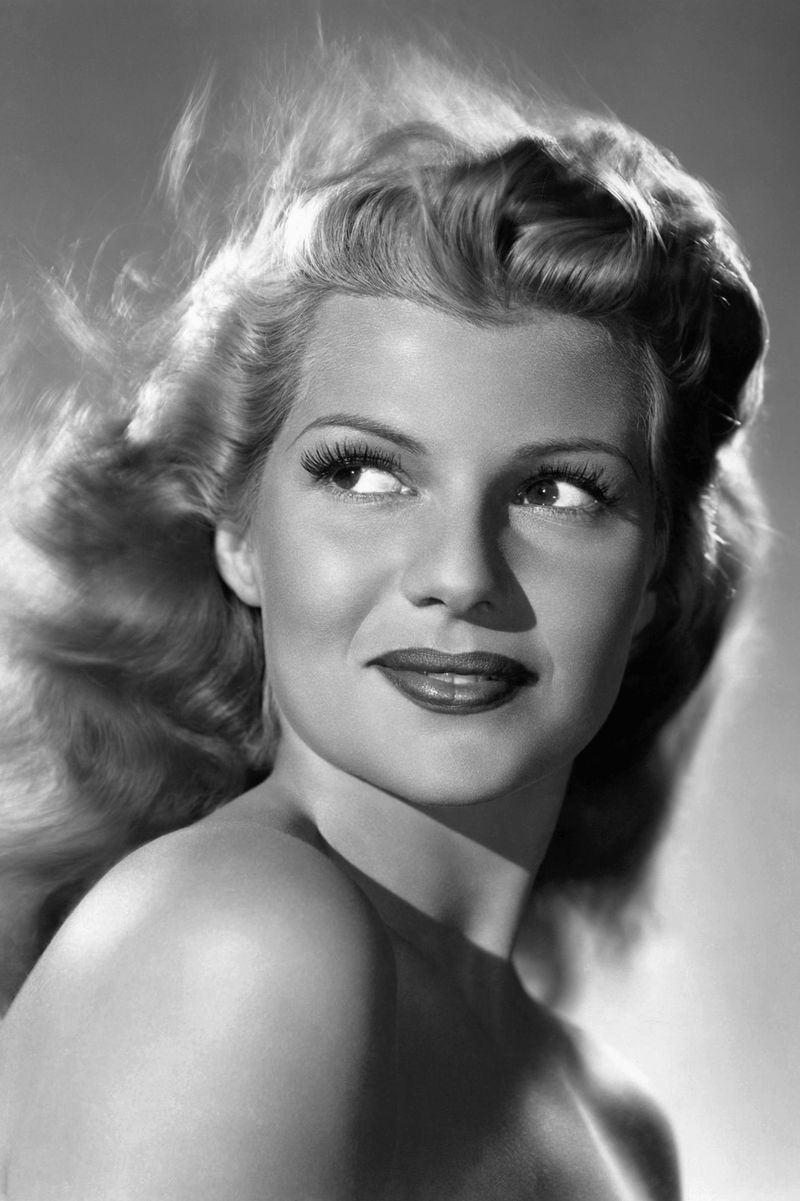
Rita Hayworth, born Margarita Carmen Cansino, was the epitome of Hollywood glamour. Her fiery red hair and sultry looks captivated audiences worldwide. However, few knew of her Spanish heritage. To fit the 1940s Hollywood mold, she underwent a transformation that included painful electrolysis to alter her hairline.
This change was instrumental in launching her career, turning Margarita into Rita, the alluring superstar. Her story is a testament to the lengths one had to go to succeed in an industry that often demanded conformity. Despite these challenges, Rita’s talent and charisma ensured her lasting legacy in cinema.
4. Helen Mirren
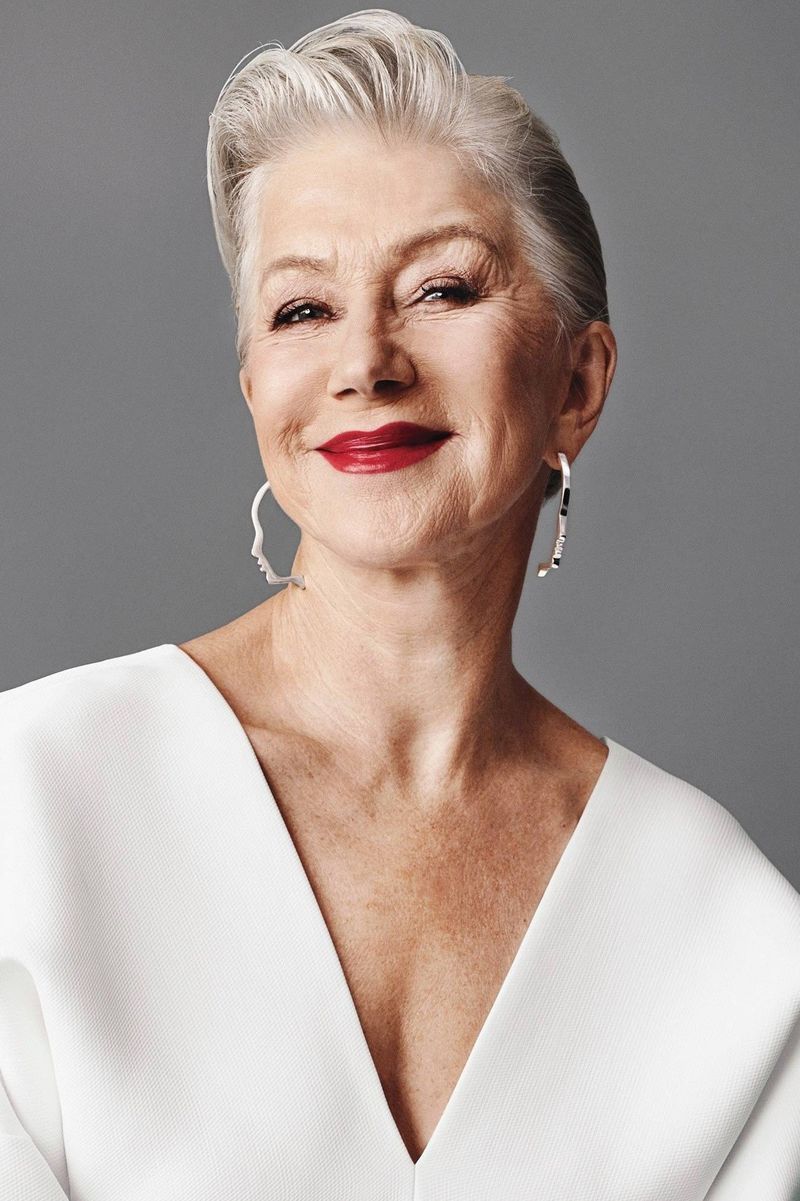
Helen Mirren, born Ilyena Lydia Mironov, embarked on a remarkable journey from her Russian roots to international stardom. Opting for a more accessible name, she navigated the cultural landscape of an industry that often overlooked diversity. Helen’s commanding presence and exceptional talent earned her acclaim across stage and screen.
Her story reflects the complexities of identity and artistry, as she remains a captivating force in cinema. Helen’s success is a testament to her resilience and ability to transcend barriers, continuing to inspire audiences and actors worldwide with her rich performances.
5. Martin Sheen
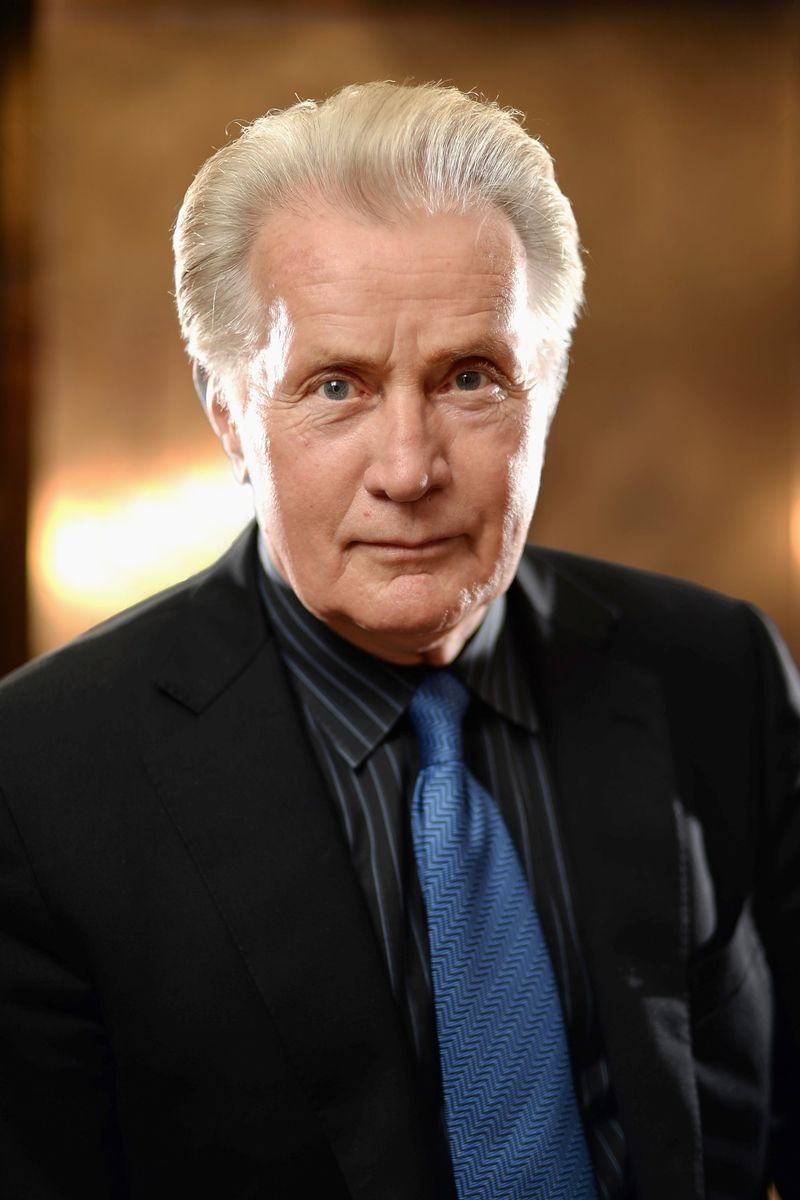
Born Ramón Gerard Antonio Estévez, Martin Sheen faced the challenge of breaking into an industry with limited roles for Hispanic actors. He adopted the stage name Martin Sheen to gain wider acceptance. His choice of a more Anglicized name opened doors that might have otherwise remained closed. Sheen’s career flourished, showcasing his versatility and depth as an actor.
His journey highlights the complex decisions many faced regarding identity and career aspirations. Despite the sacrifices, Sheen became a respected figure, balancing his personal heritage with the demands of Hollywood’s ever-evolving landscape.
6. Raquel Welch
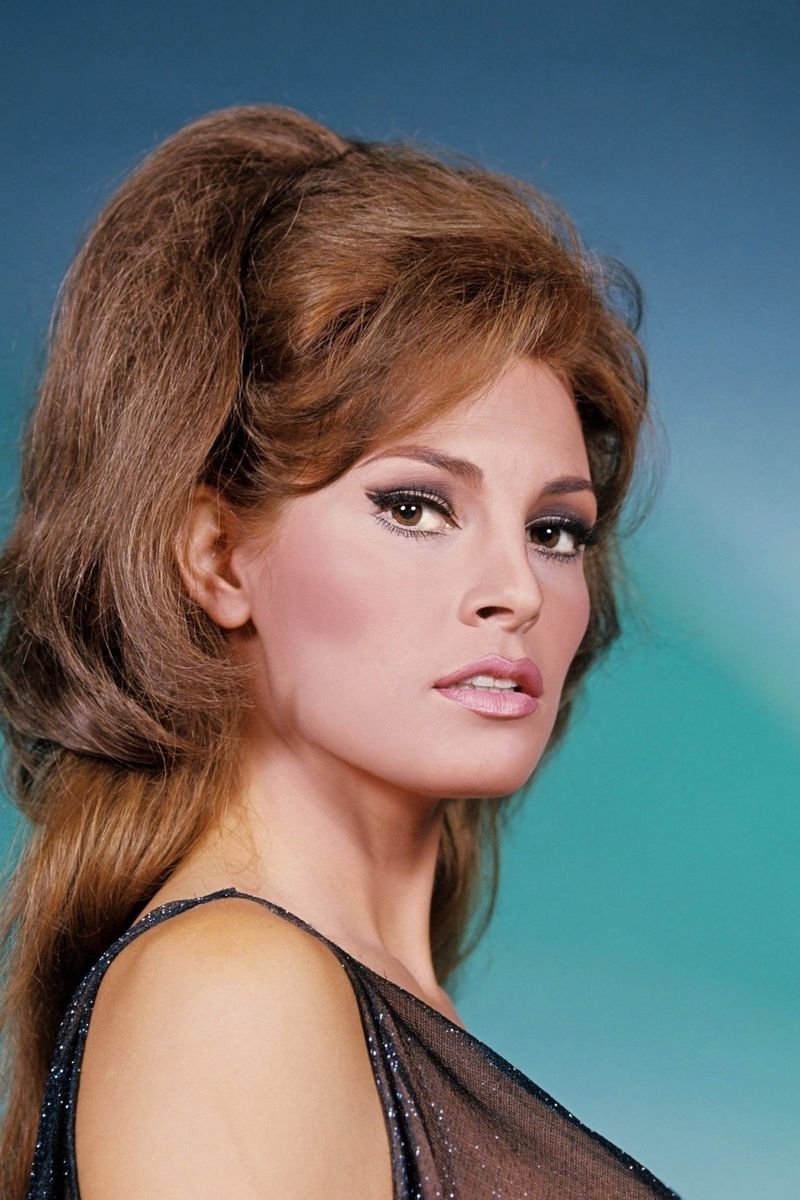
Raquel Welch, originally Jo Raquel Tejada, emerged as a sex symbol of the 1960s. Born to a Bolivian father, Raquel modified her name to navigate the industry’s biased landscape. Her ambition was clear: to become a star without the constraints of ethnic stereotyping. Raquel’s exotic beauty and undeniable talent made her an icon, transcending the barriers that often held others back.
Her struggle and success serve as a reminder of the industry’s previous limitations, but also of her remarkable ability to redefine standards. Raquel Welch remains a symbol of resilience and change in Hollywood’s narrative.
7. Anthony Quinn
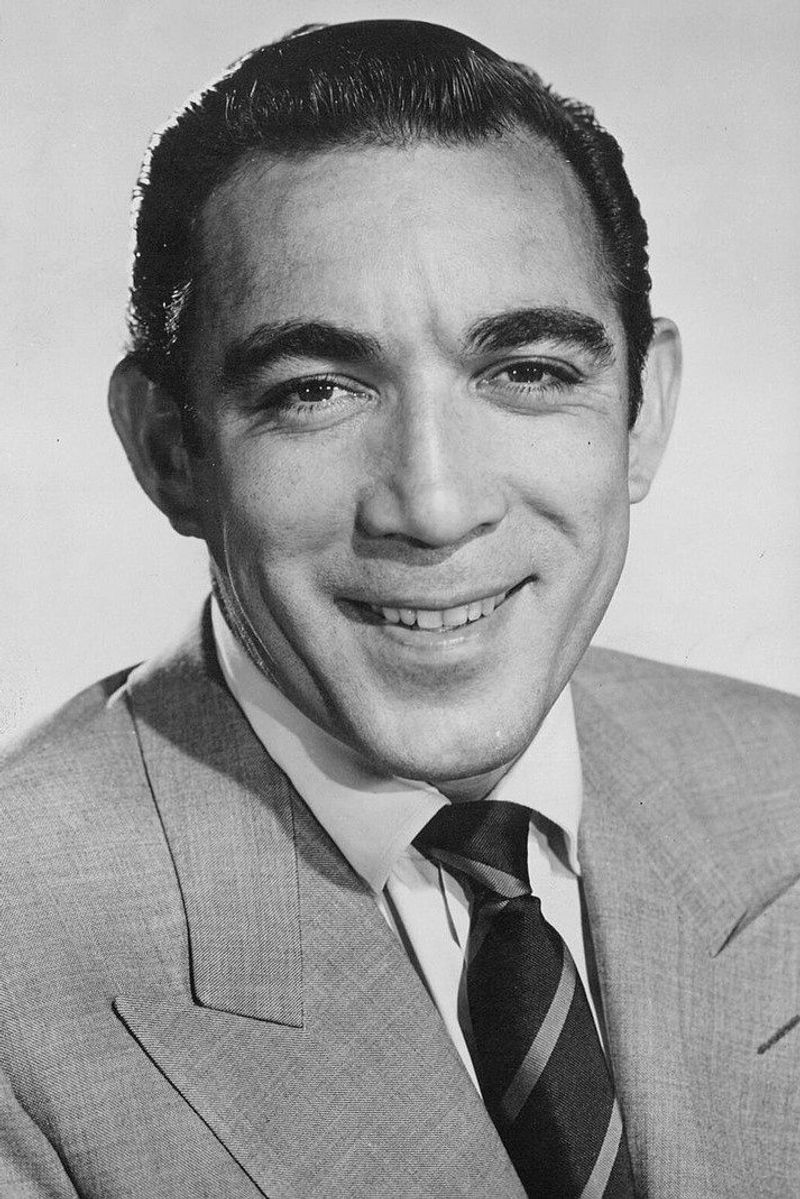
Born Manuel Antonio Rodolfo Quinn Oaxaca, Anthony Quinn faced an industry not ready for Latino actors. He embraced a name that masked his ethnicity, allowing him to portray a wide range of characters. Quinn’s dynamic presence and raw talent were undeniable, earning him two Academy Awards. His story is one of immense talent overcoming barriers.
Despite the industry’s limitations, Anthony’s performances were celebrated worldwide, proving that true artistry knows no bounds. His legacy endures, reminding us of the power of transformation and the pursuit of one’s dreams.
8. Ben Kingsley
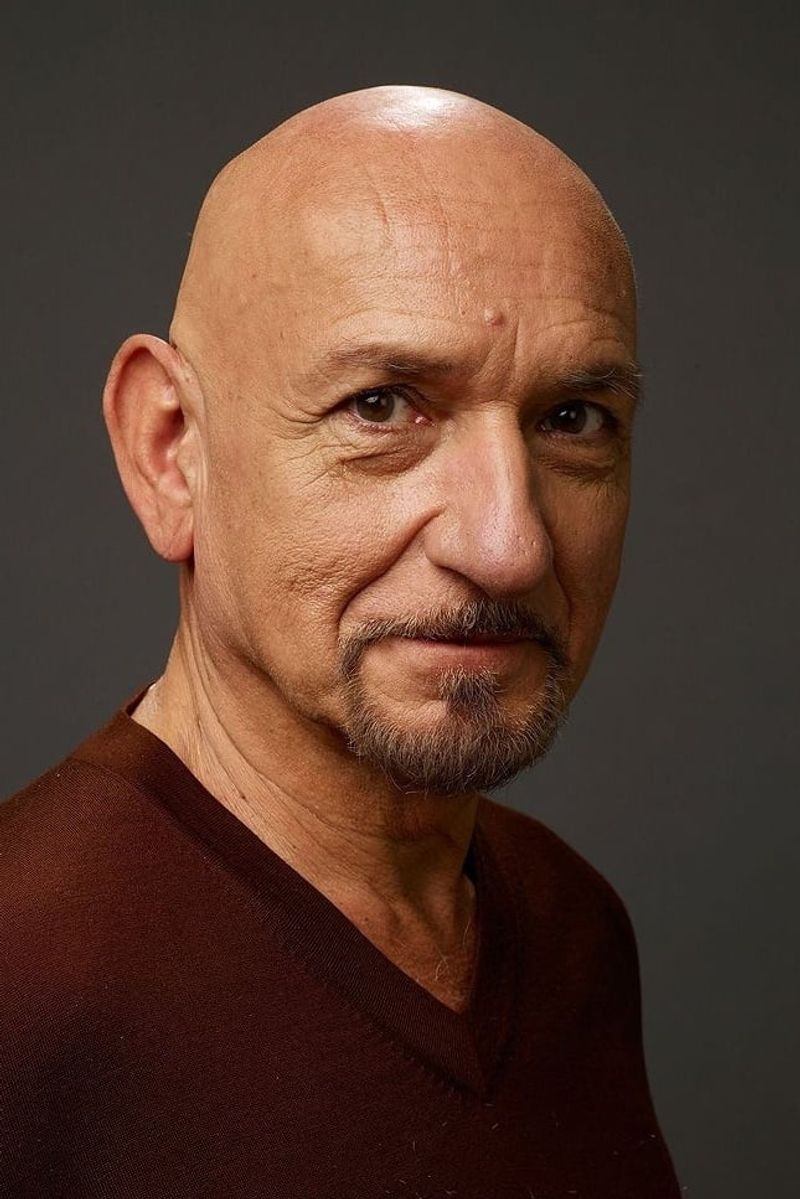
Sir Ben Kingsley, born Krishna Pandit Bhanji, chose a name change to navigate the complexities of Hollywood. With Indian heritage, he faced an industry not ready to embrace diversity. Adopting a more Western name helped him avoid typecasting. This decision paved the way for a career filled with diverse roles and accolades, including an Oscar for “Gandhi.”
Ben Kingsley’s journey reflects the challenges and triumphs associated with personal and professional identity. His story is one of perseverance, showcasing that talent ultimately transcends the boundaries of ethnicity when given the chance.
9. Natalie Wood
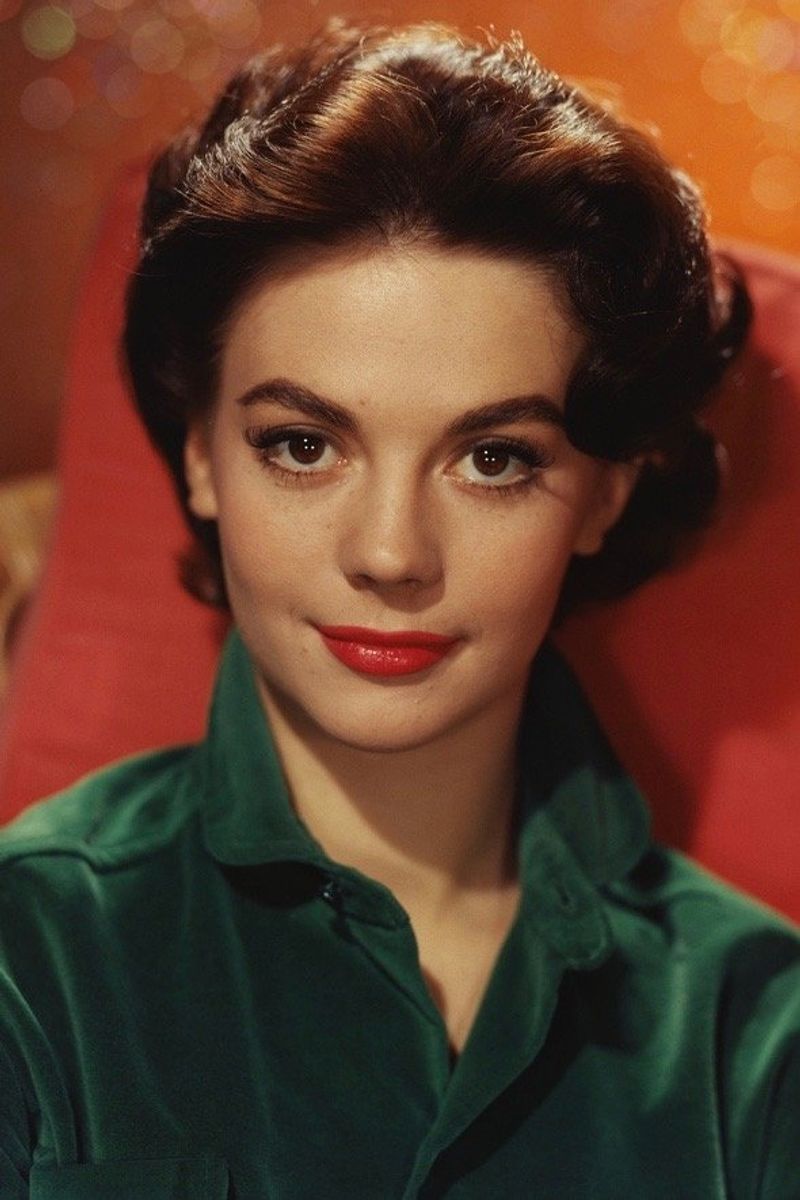
Natalie Wood, originally Natalie Zacharenko, was a star whose talent shone brightly from a young age. With Russian ancestry, changing her surname was a decision to fit into Hollywood’s expectations. Despite her young age, Wood possessed a maturity and depth that translated into memorable performances.
Her journey from child star to leading lady was marked by both triumphs and challenges. Natalie’s story is one of a young woman navigating an industry with rigid norms, yet she managed to leave an indelible mark on cinema. Her legacy continues to inspire aspiring actors worldwide.
10. Tony Curtis
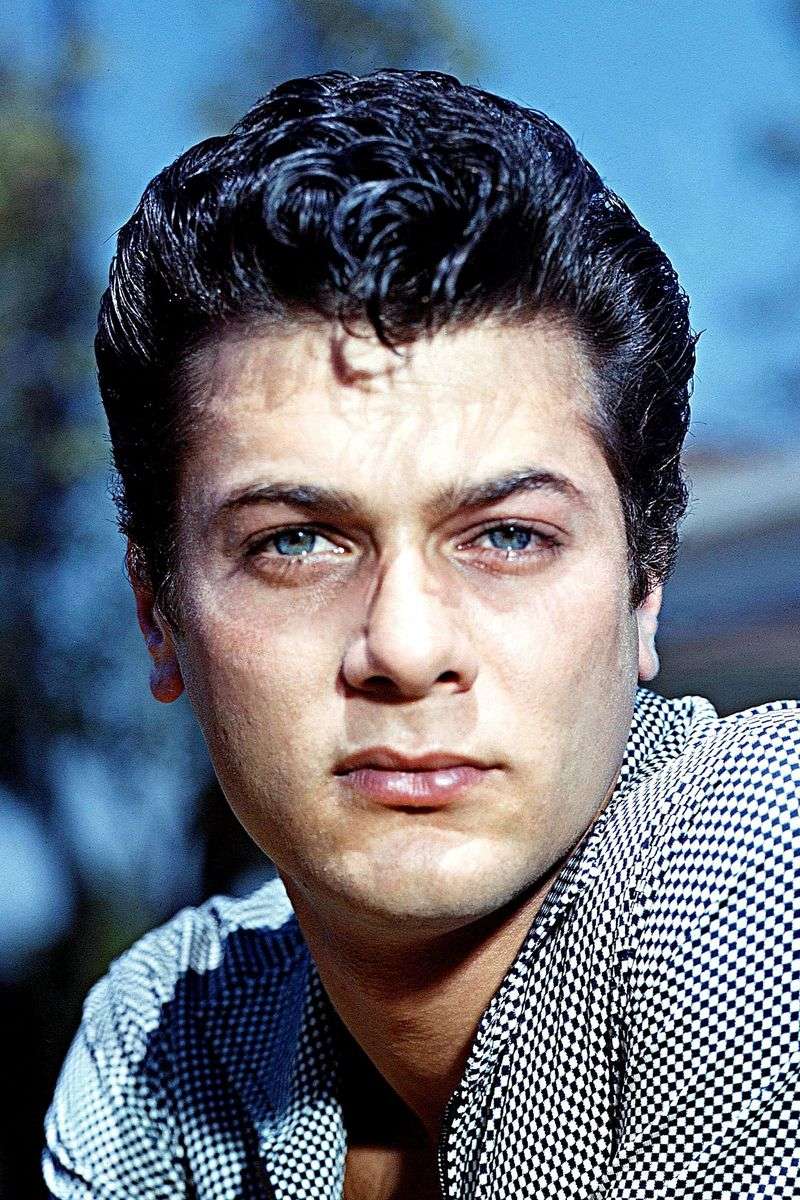
Tony Curtis, born Bernard Schwartz, became one of Hollywood’s most sought-after leading men. Growing up in a Hungarian-Jewish family, changing his name was a step towards a more universal appeal. Curtis’s charm and good looks paired with his talent allowed him to capture the hearts of audiences.
His decision to adopt a new identity was part of a broader strategy to succeed in a demanding industry. Tony’s versatility on screen demonstrated that while names might be altered, genuine talent remains unchanged. His story is one of transformation and success in the Hollywood sphere.
11. Chloe Bennet

Born Chloé Wang, Chloe Bennet faced the dual pressures of Hollywood’s beauty standards and cultural biases. Embracing the name Bennet was a strategic choice to access more diverse roles. Despite the challenges, Chloe’s talent shone through, particularly in her breakthrough role in “Agents of S.H.I.E.L.D.” Her decision reflects the ongoing struggles for representation in Hollywood.
Chloe’s career is a testament to the evolving landscape of the industry and the importance of perseverance. She continues to advocate for diversity, embodying the change she wishes to see in the world of entertainment.
12. Boris Karloff
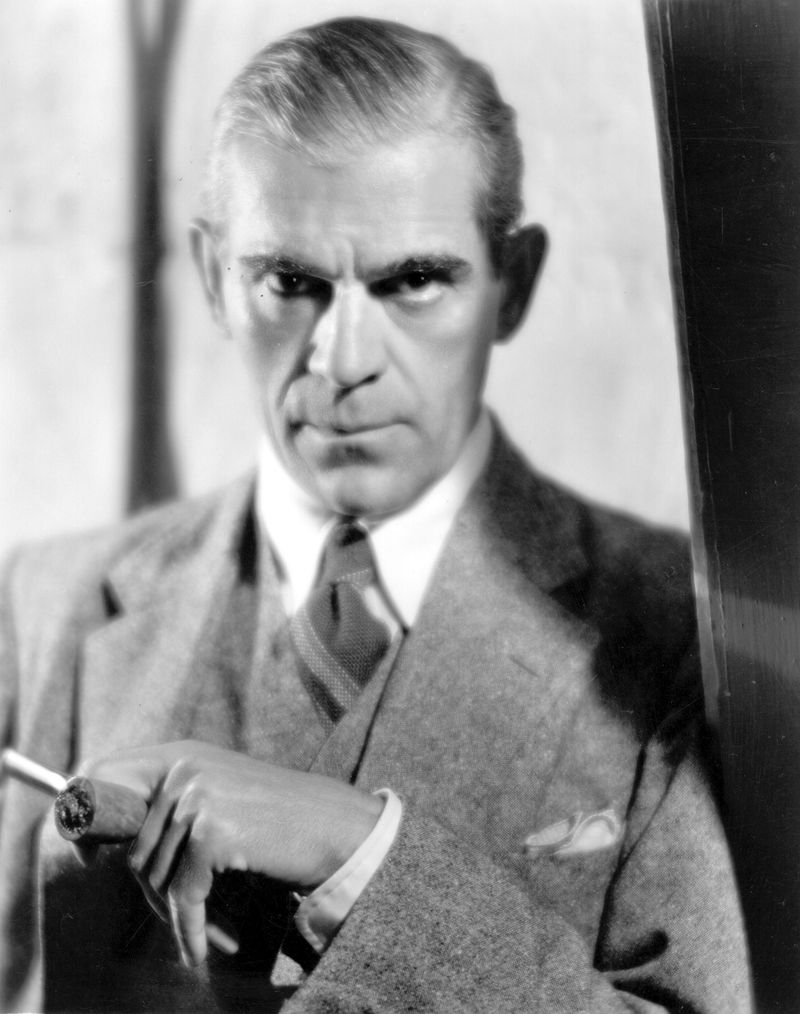
Boris Karloff, born William Henry Pratt, became synonymous with horror film classics. Of British-Indian descent, Karloff faced an industry where his heritage could have limited his opportunities. Adopting a stage name allowed him to craft an identity that resonated with audiences. His chilling performances in films like “Frankenstein” cemented his legacy in cinema history.
Boris’s story is a fascinating exploration of identity and artistry, as he became an icon through his unique talent. His ability to transform into various roles captivated viewers and left an enduring impact on the film industry.
13. Doris Day
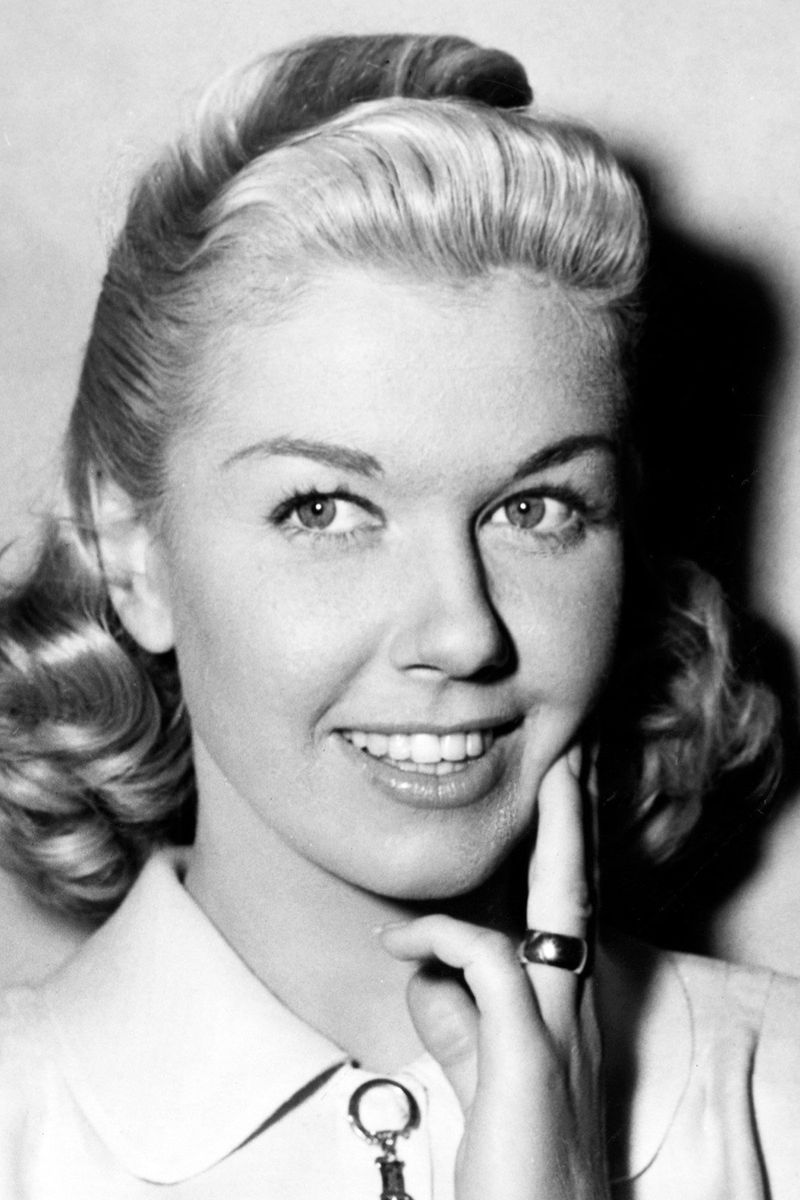
Doris Day, born Doris Mary Anne Kappelhoff, became America’s sweetheart with her sunny disposition and melodic voice. Her name change was a strategic move to appeal to a wider audience, shedding the complexity of her German surname.
Doris’s success in music and film showcased her versatile talent and wholesome image. She captured the hearts of millions, becoming a symbol of optimism and joy in post-war America. Her journey highlights the balance between personal identity and public persona, leaving behind a legacy of positivity and entertainment that resonates to this day.
14. Gene Simmons
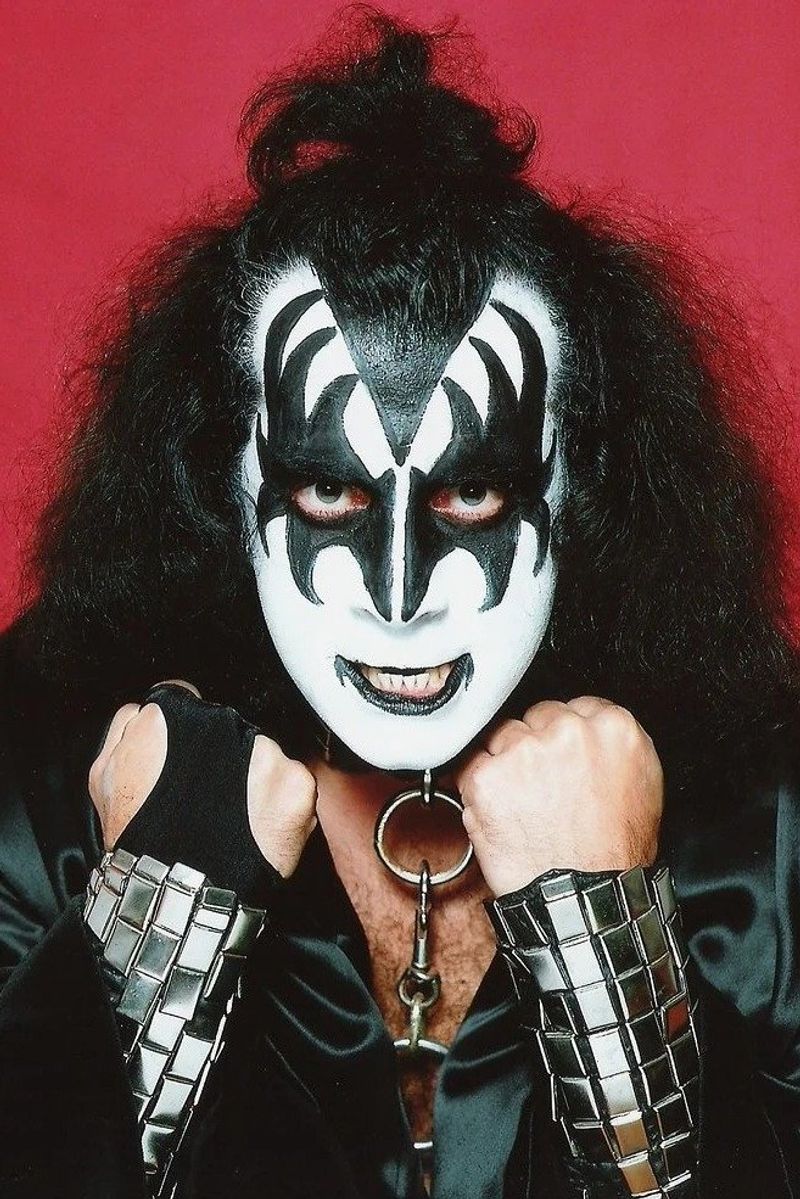
Gene Simmons, born Chaim Witz, transformed himself into a rock legend with the band KISS. Of Israeli descent, changing his name was part of creating a persona that resonated with fans worldwide. His larger-than-life stage performances and entrepreneurial spirit made him an icon in the music industry.
Gene’s journey is a remarkable tale of reinvention and branding, highlighting the power of identity in entertainment. Despite his name change, his cultural influences remained part of his artistry. Gene Simmons continues to be a dynamic presence, inspiring future generations of musicians and entertainers.
15. Danny Thomas
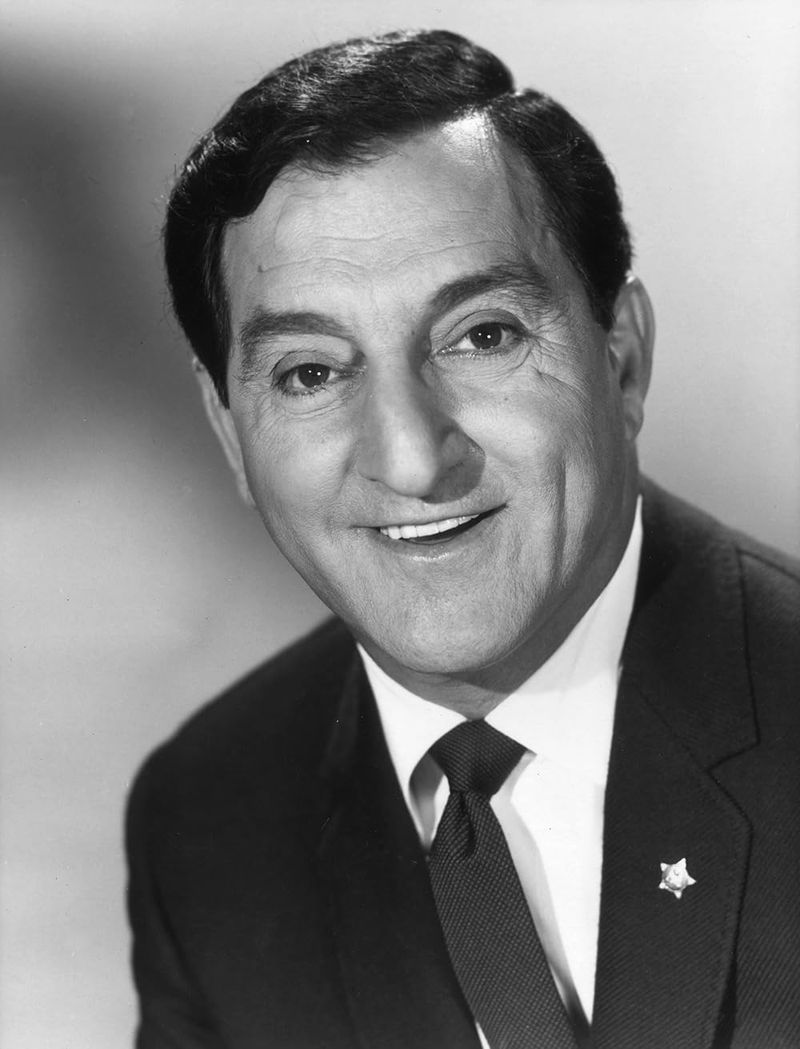
Danny Thomas, born Amos Muzyad Yaqoob Kairouz, became a beloved entertainer known for his comedic talent. Of Lebanese descent, adopting a more Americanized name helped him reach a broader audience. His charisma and humor made him a household name, while his philanthropic efforts cemented his legacy.
Danny’s establishment of St. Jude Children’s Research Hospital remains one of his most significant contributions. His story is one of overcoming cultural barriers and using his platform for greater good. Danny Thomas’s life and work continue to impact countless lives, inspiring others with his generosity and vision.

Comments
Loading…